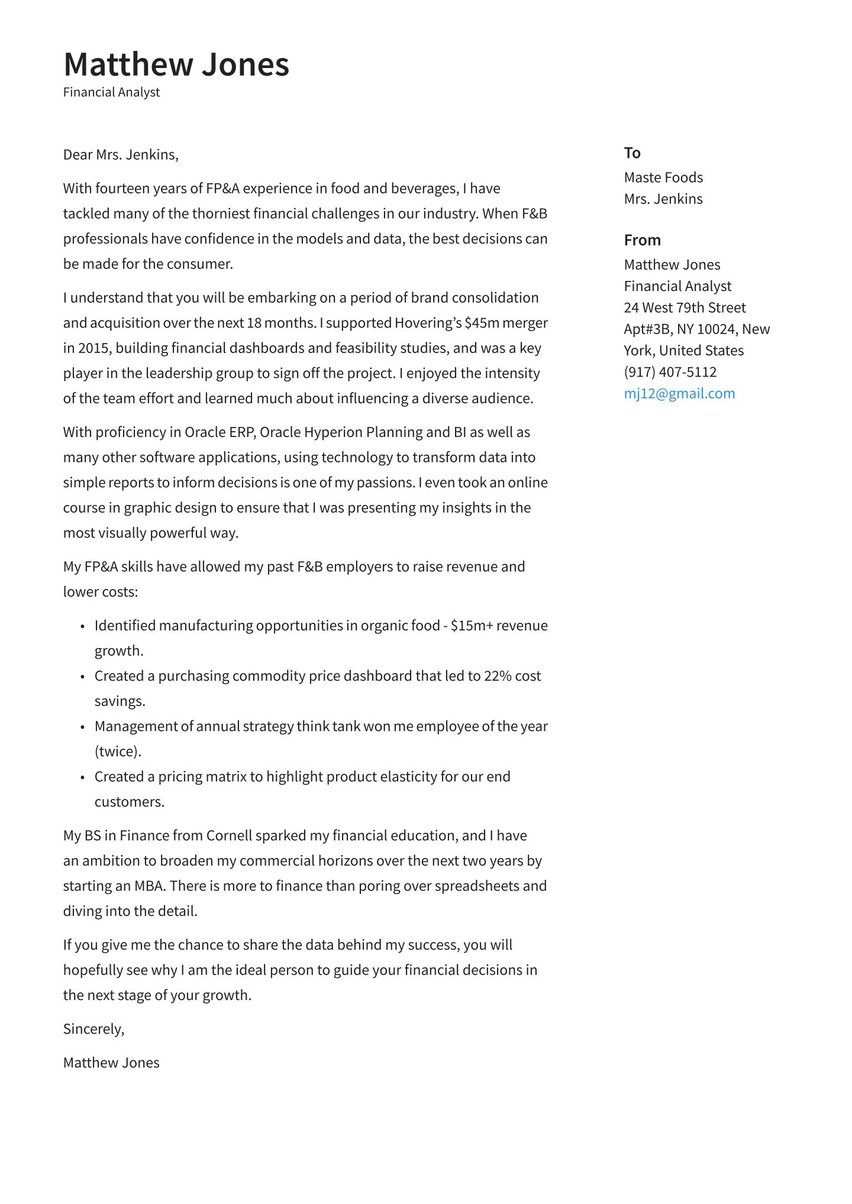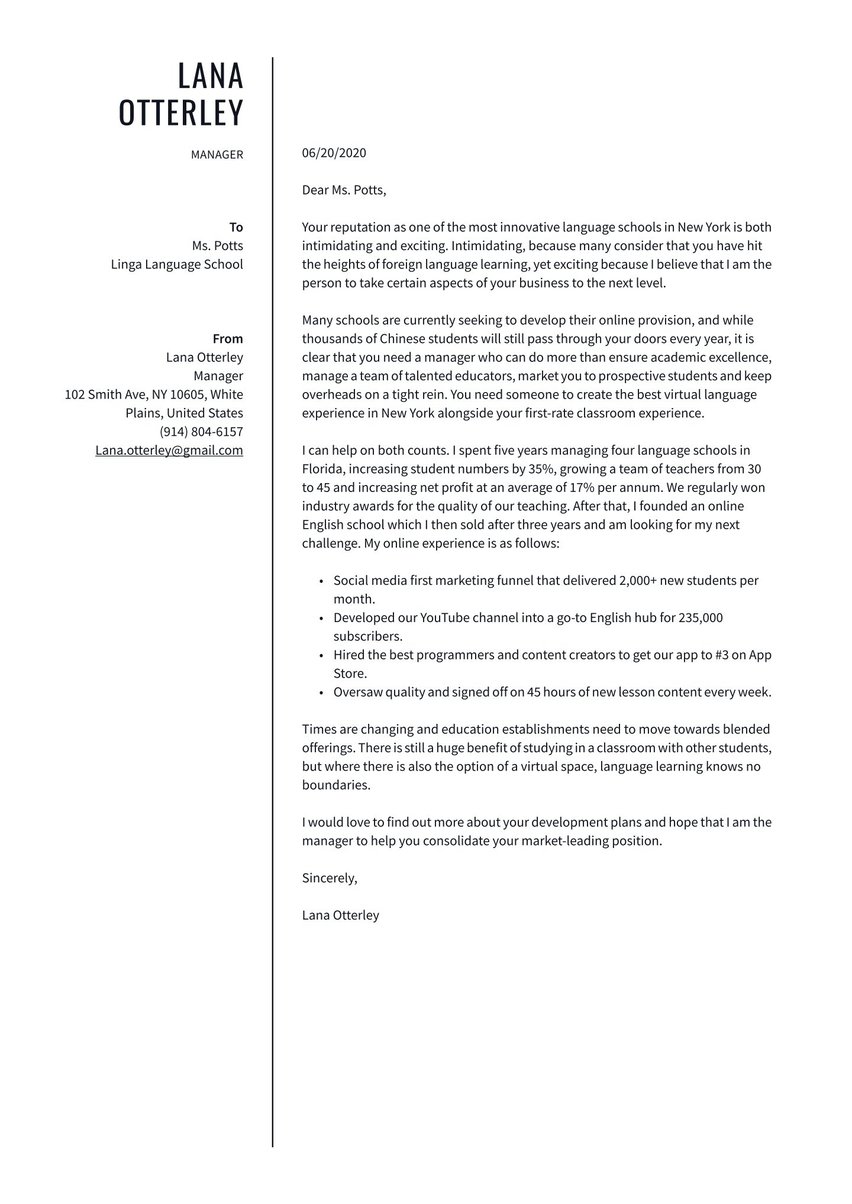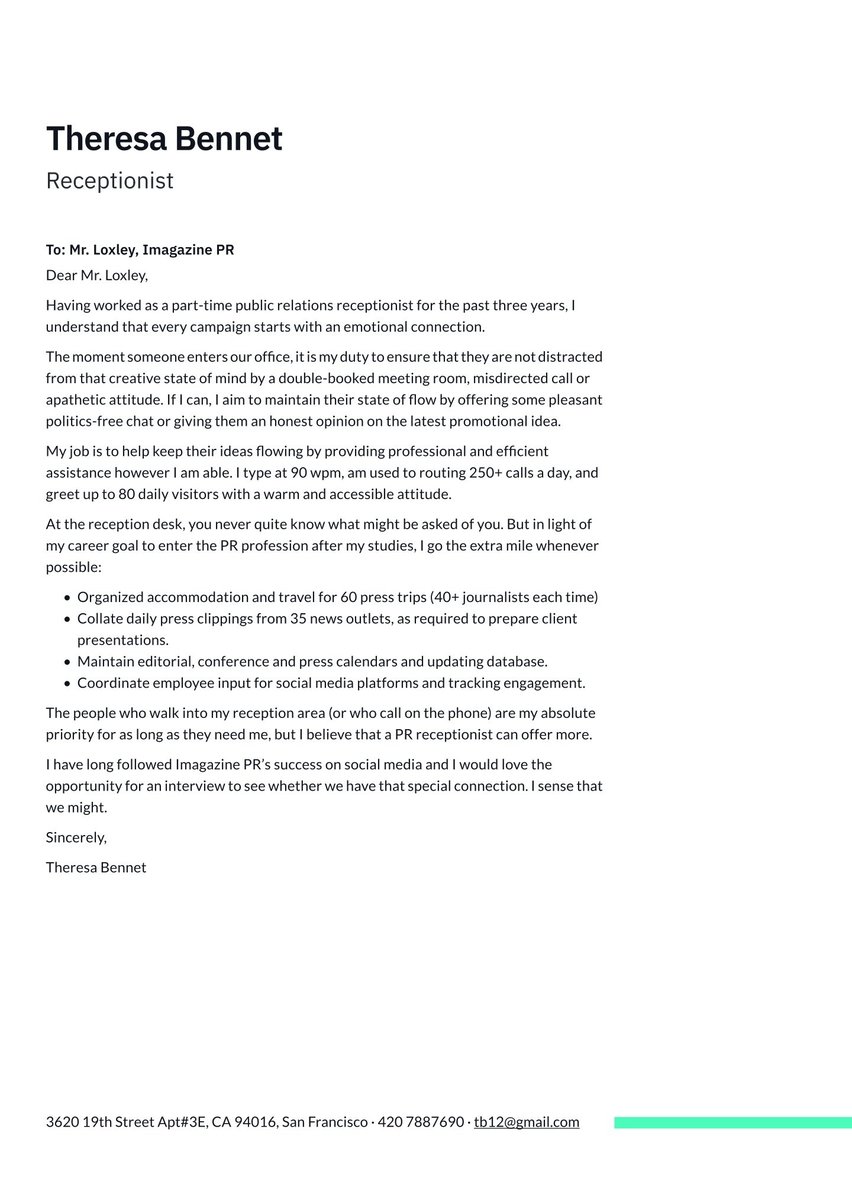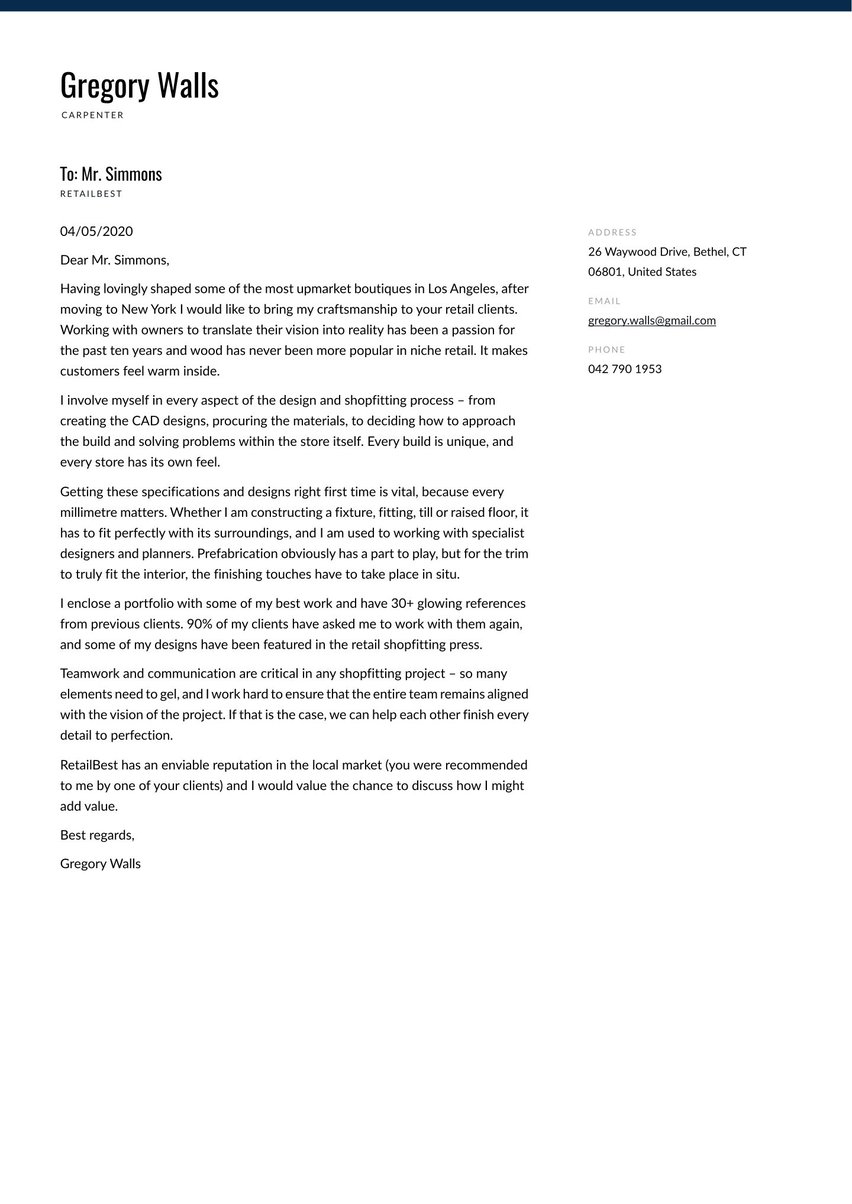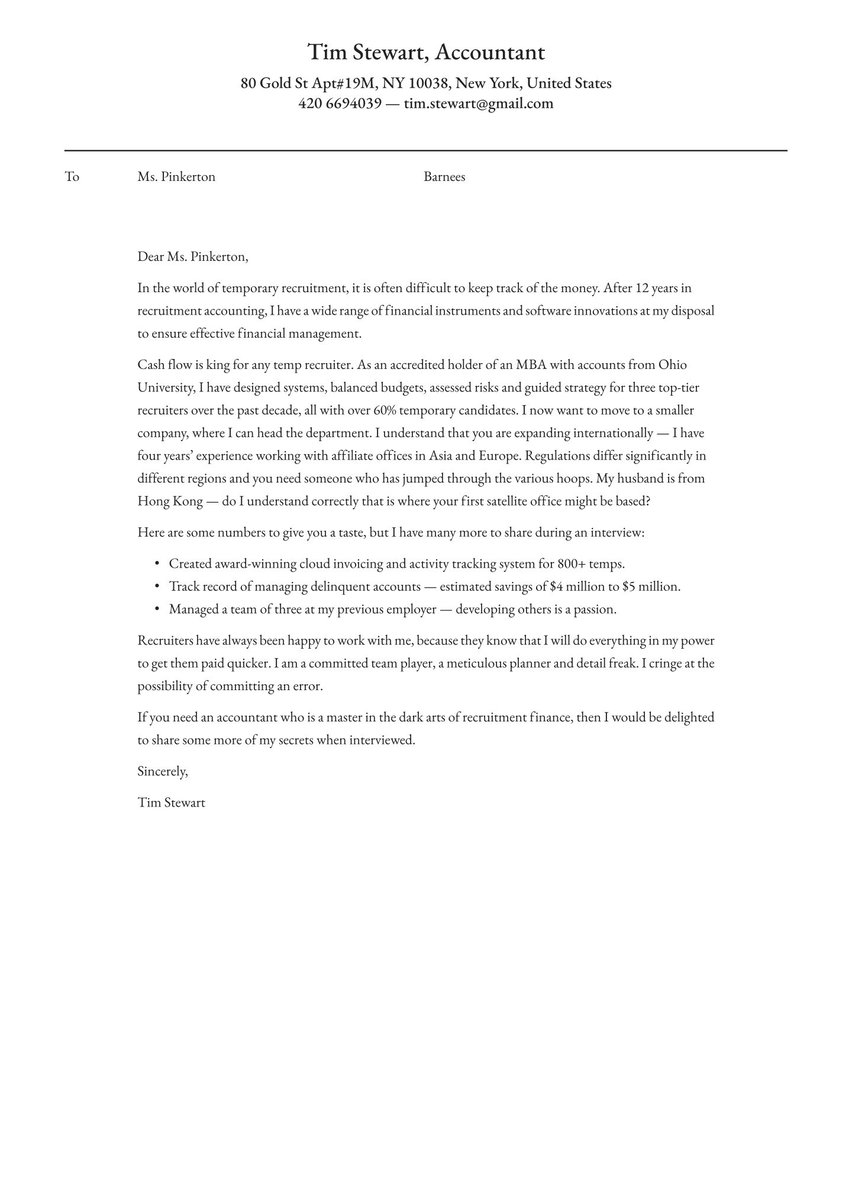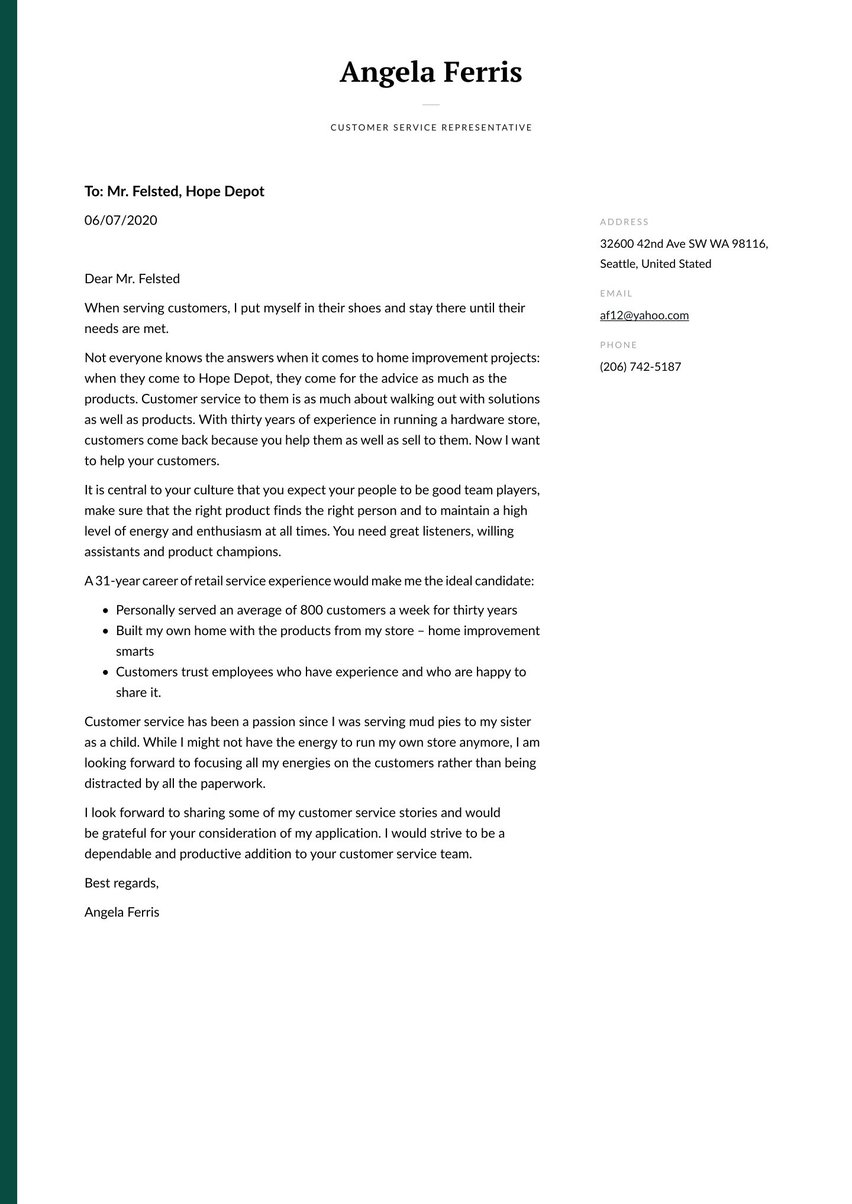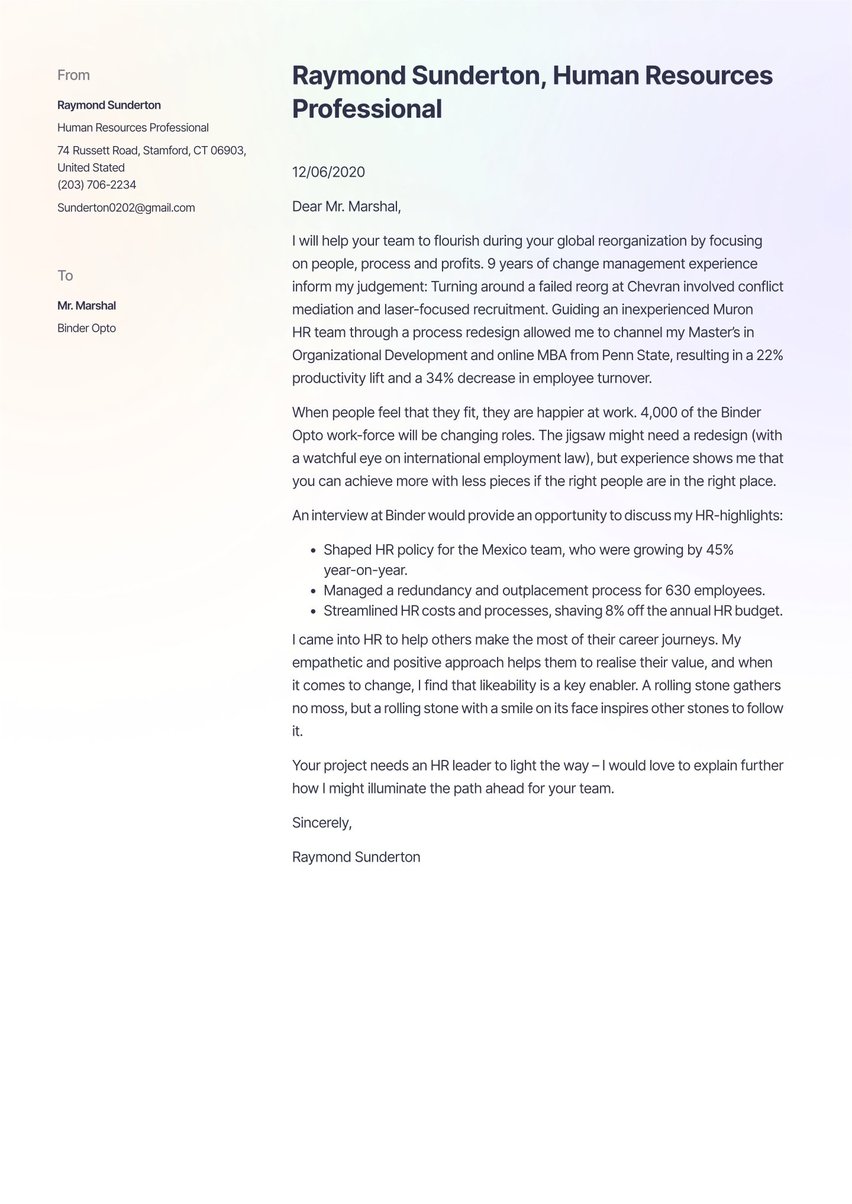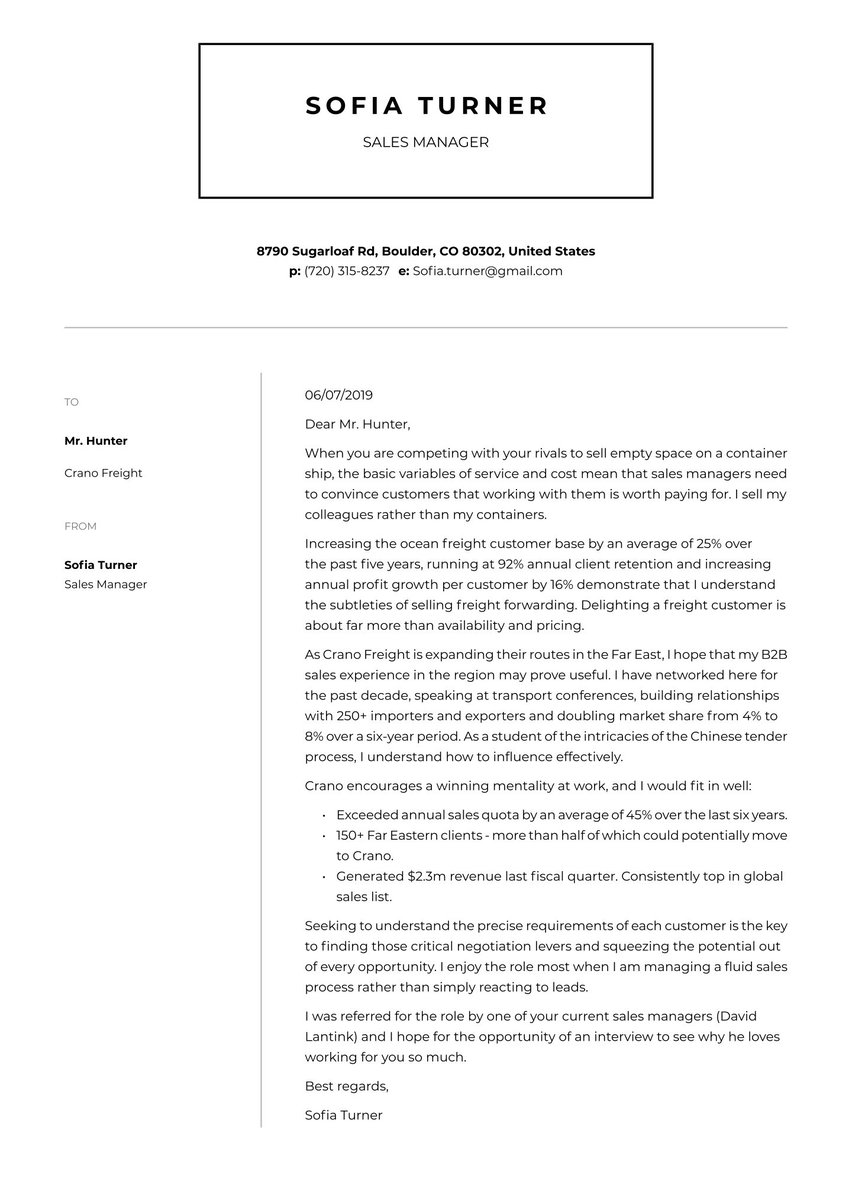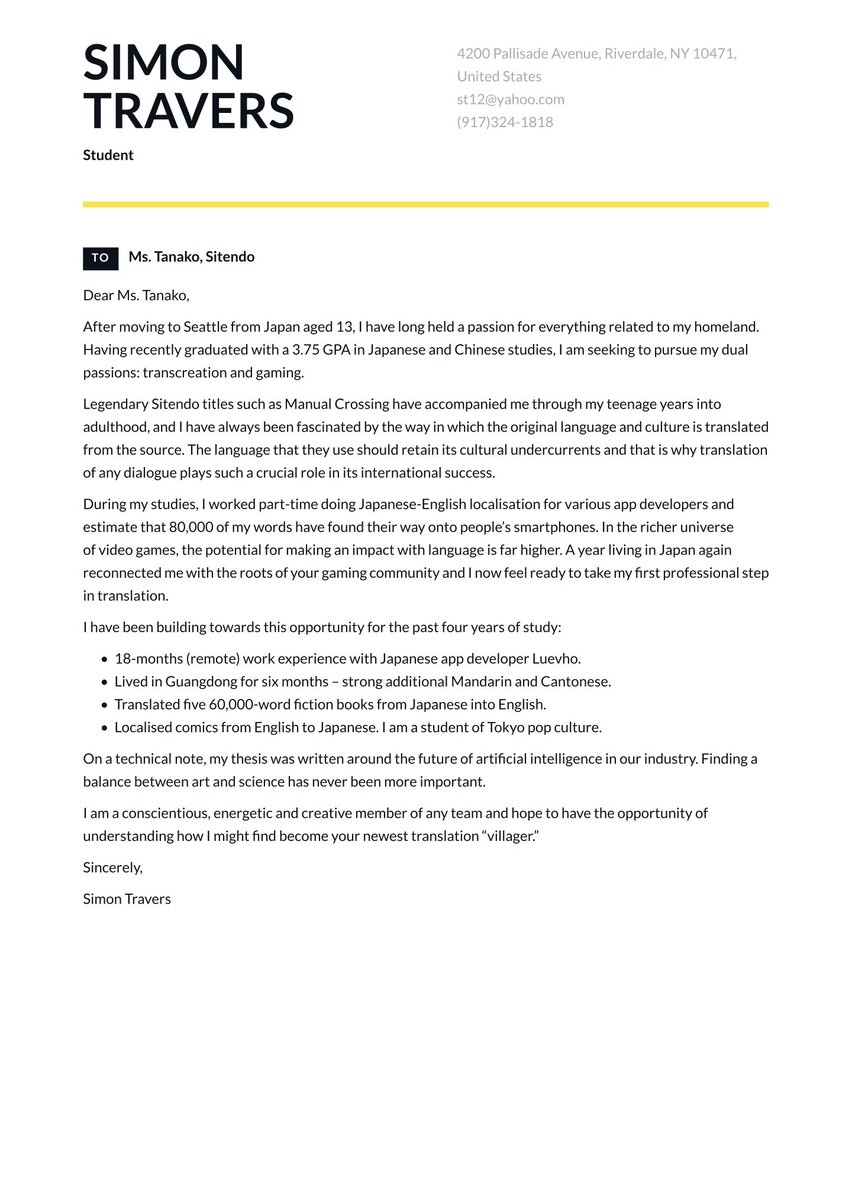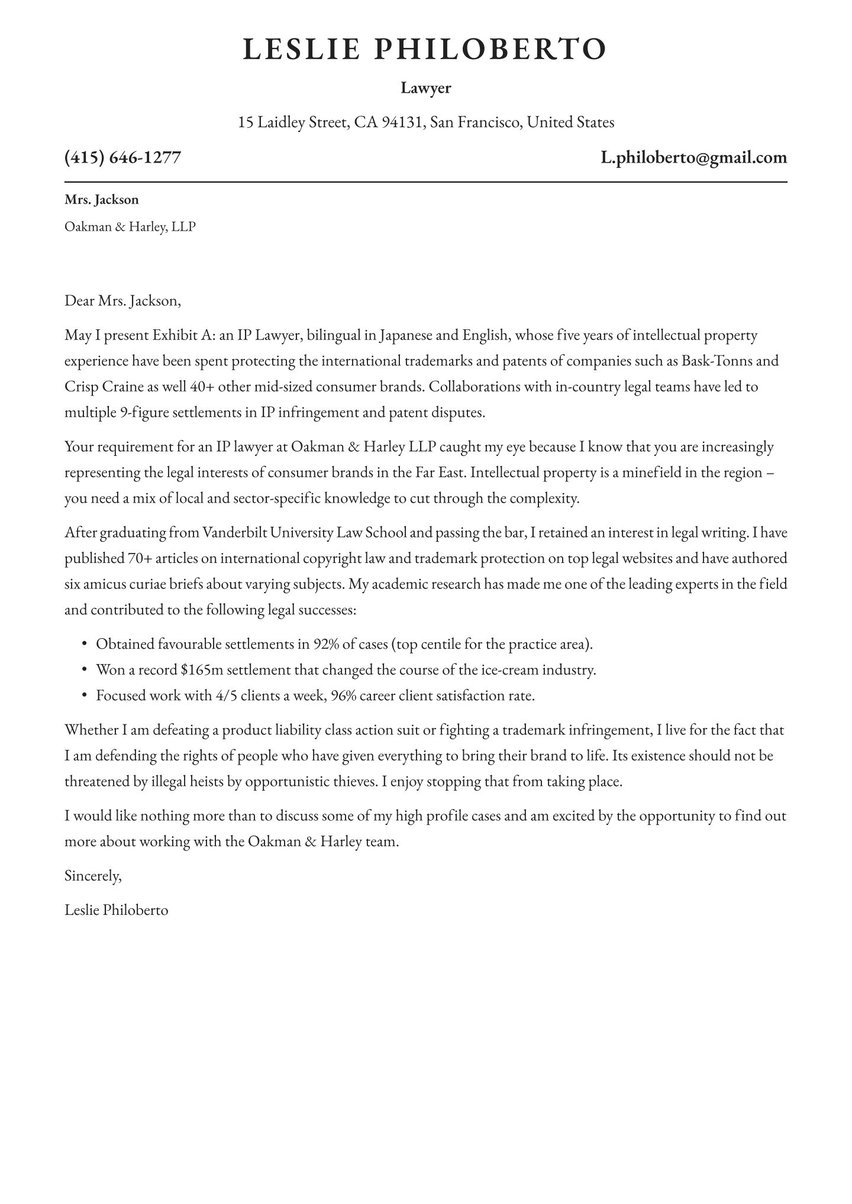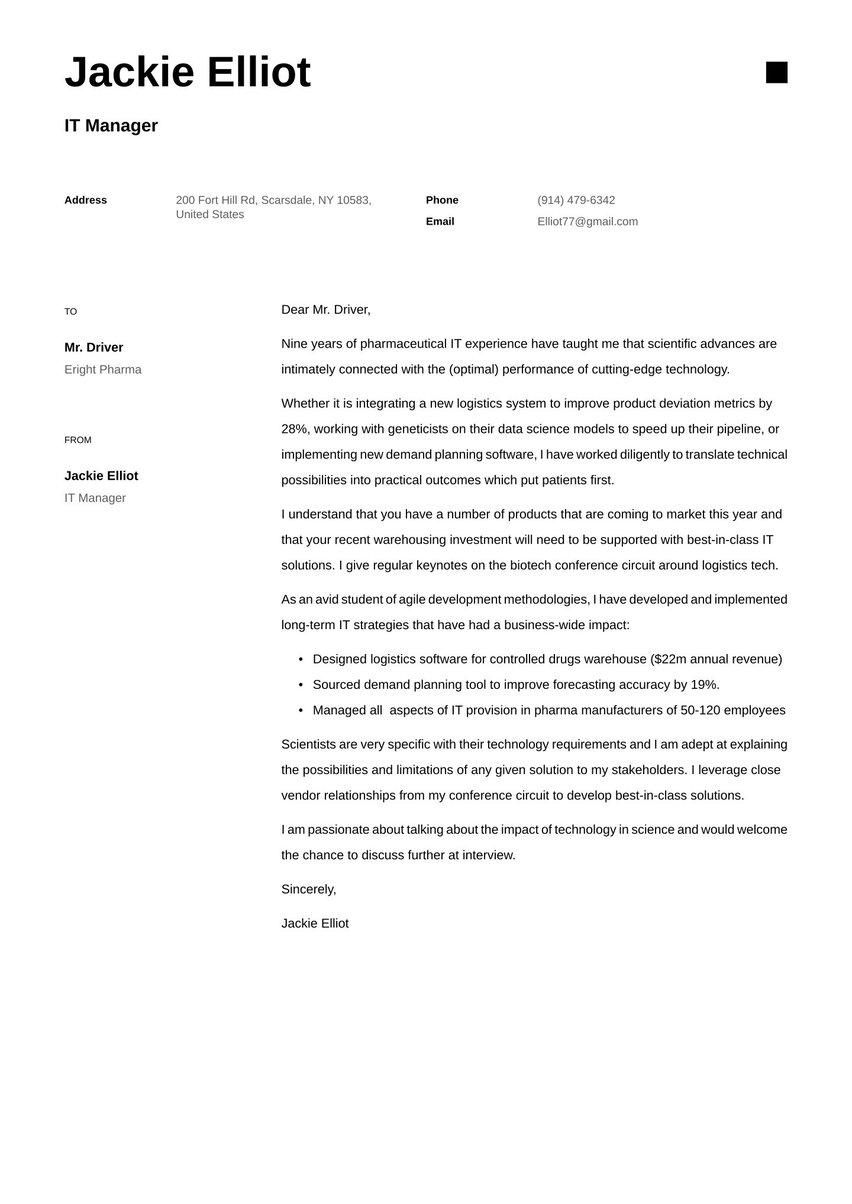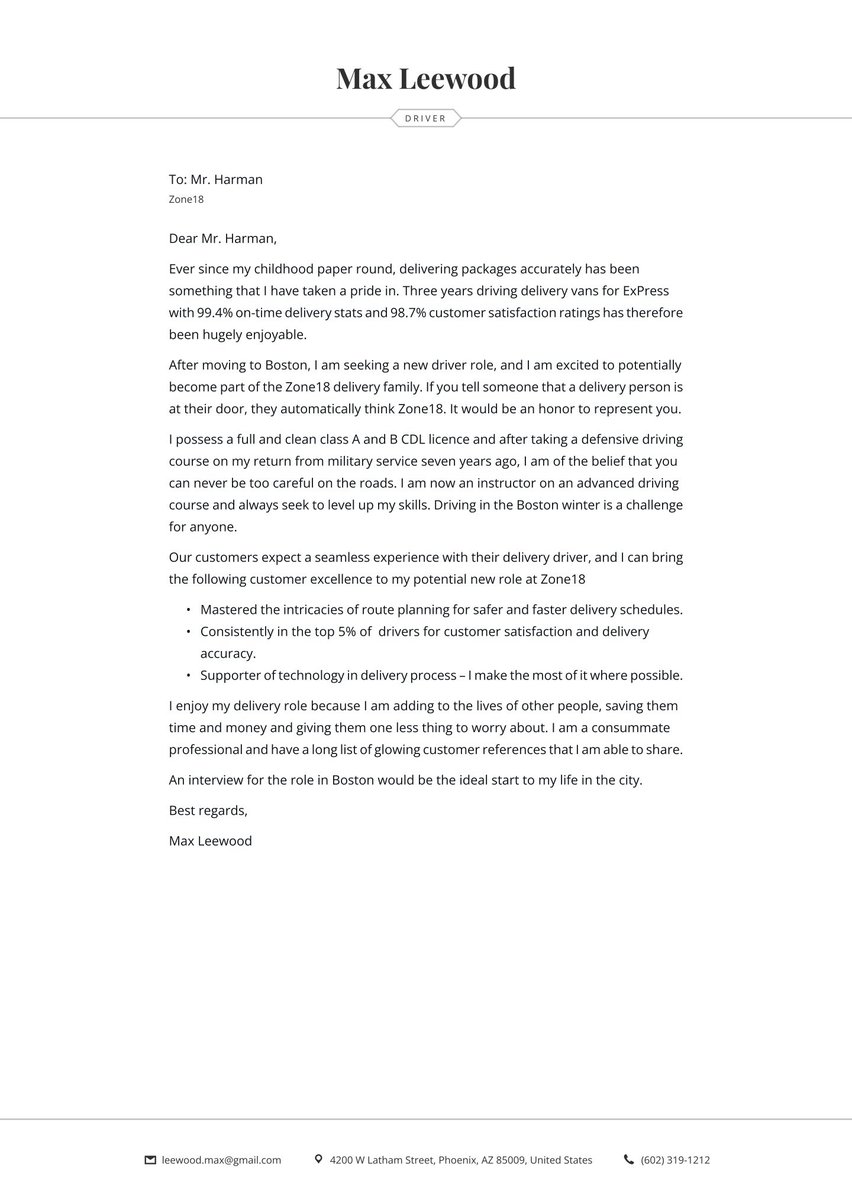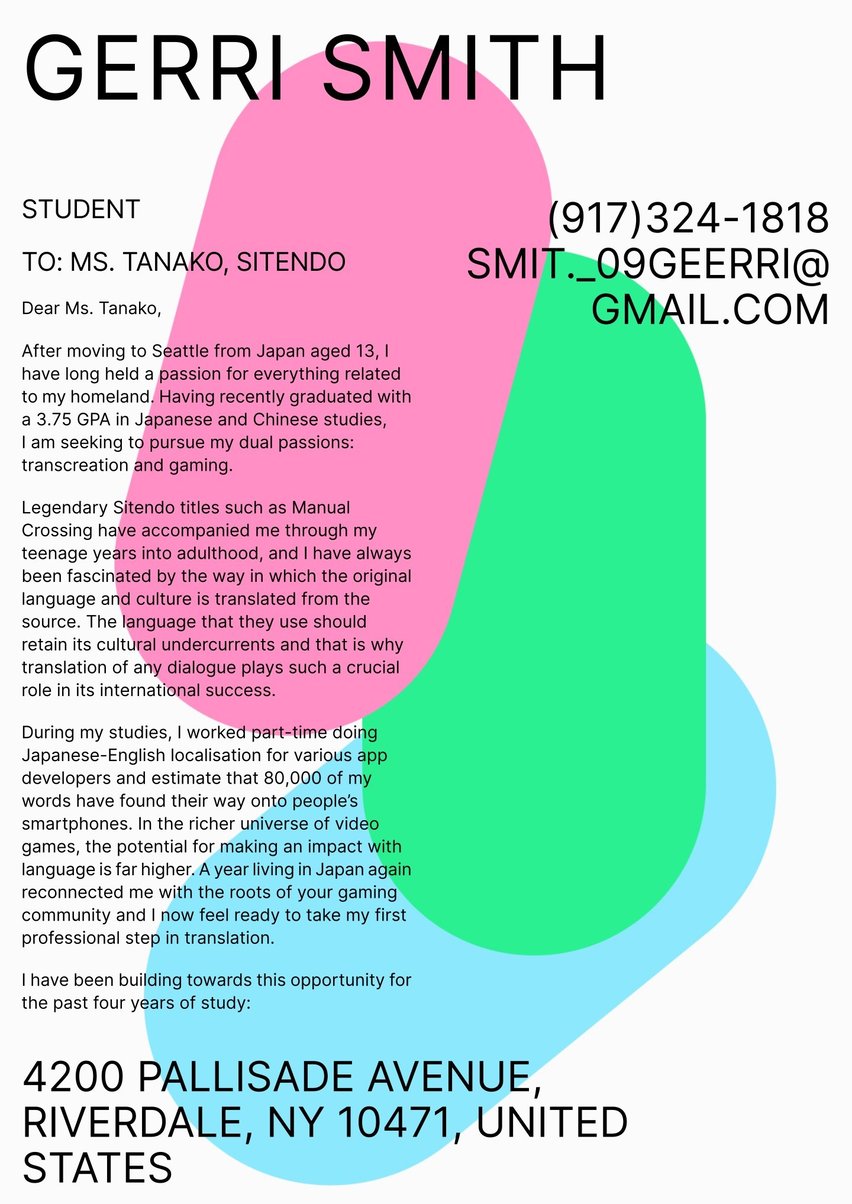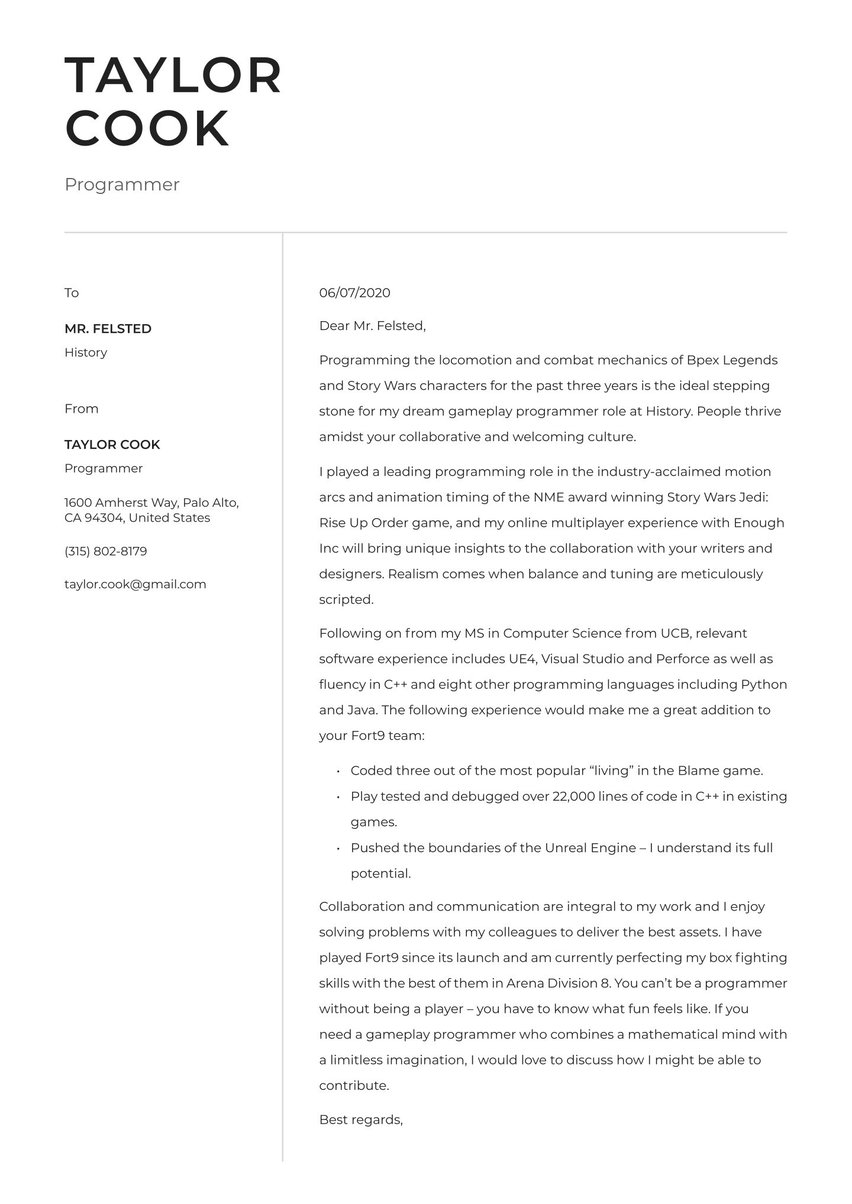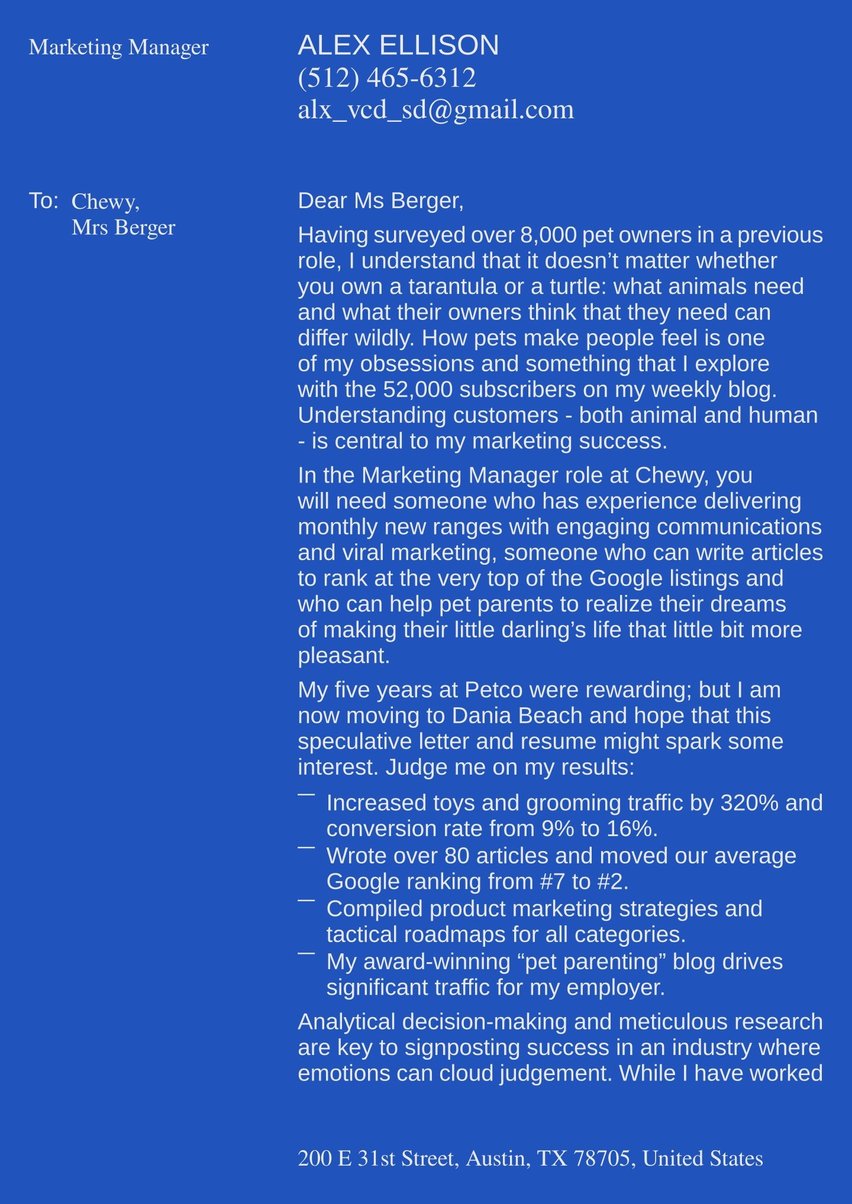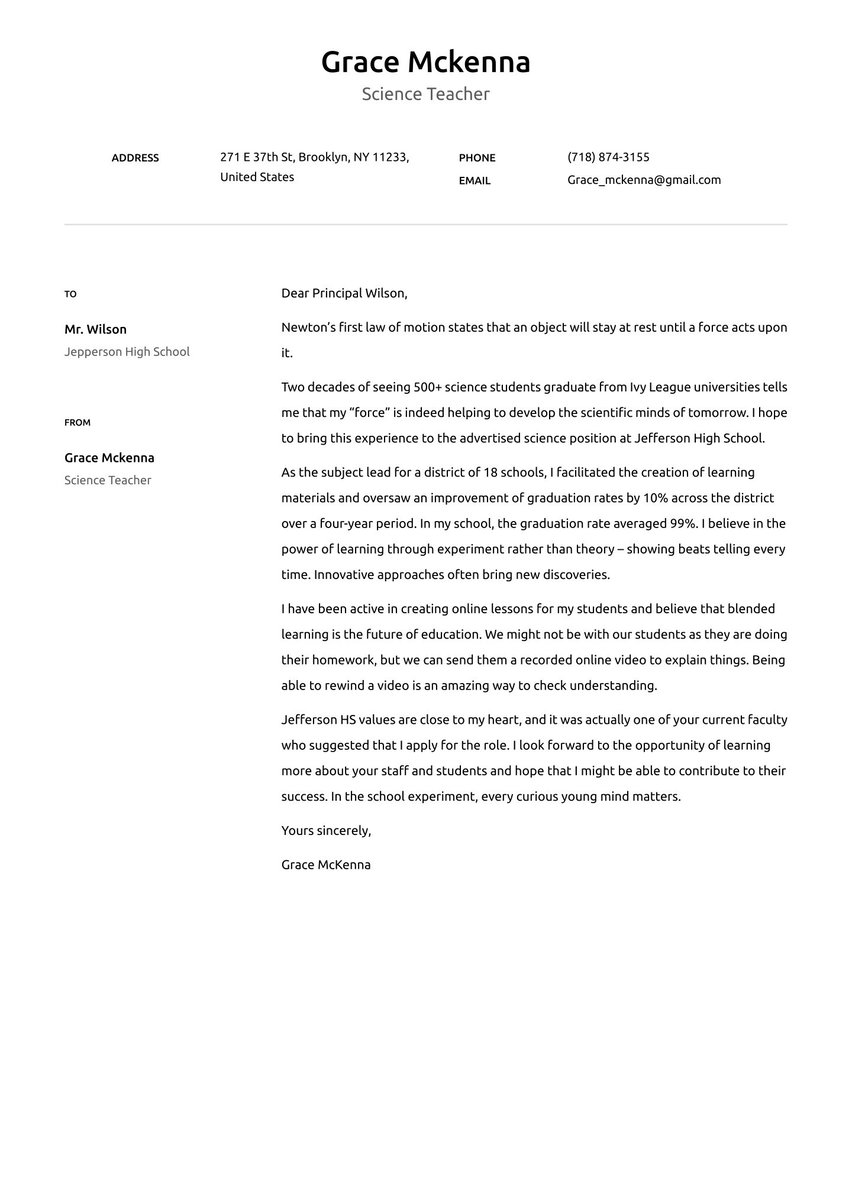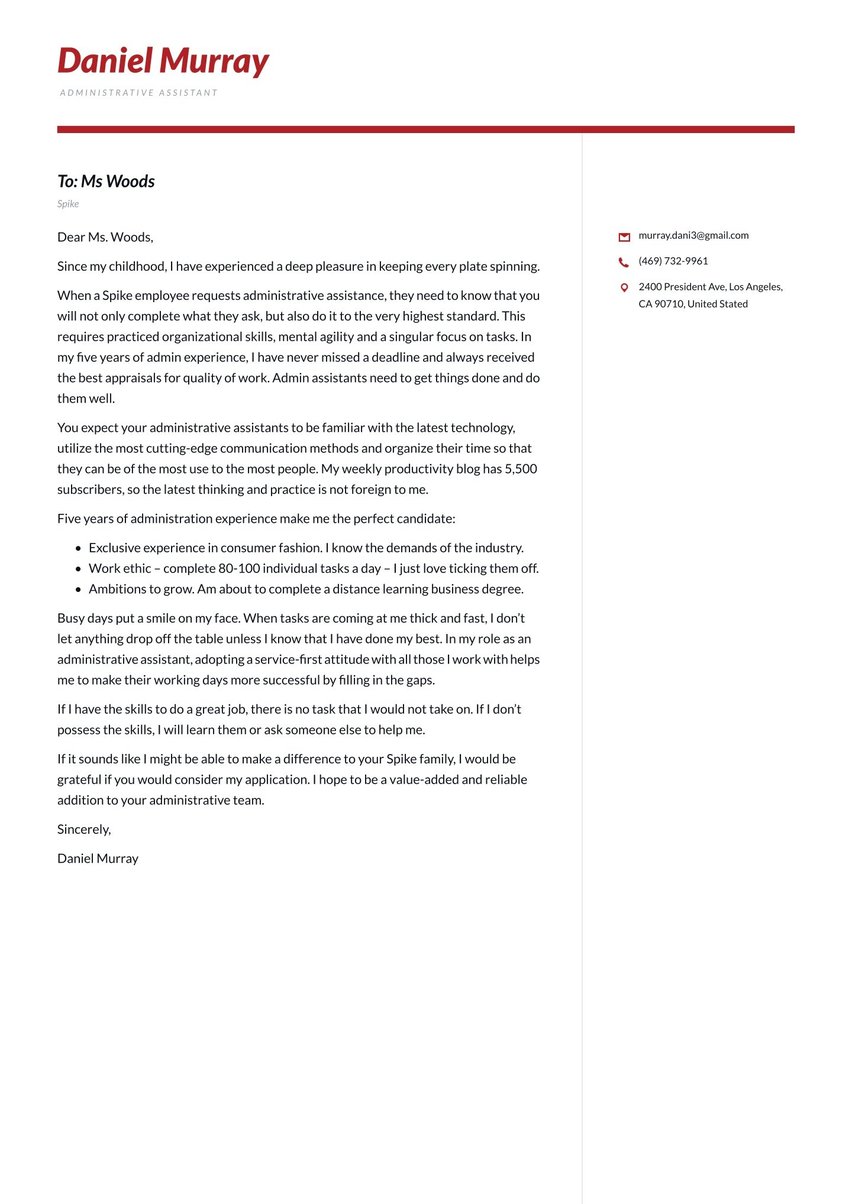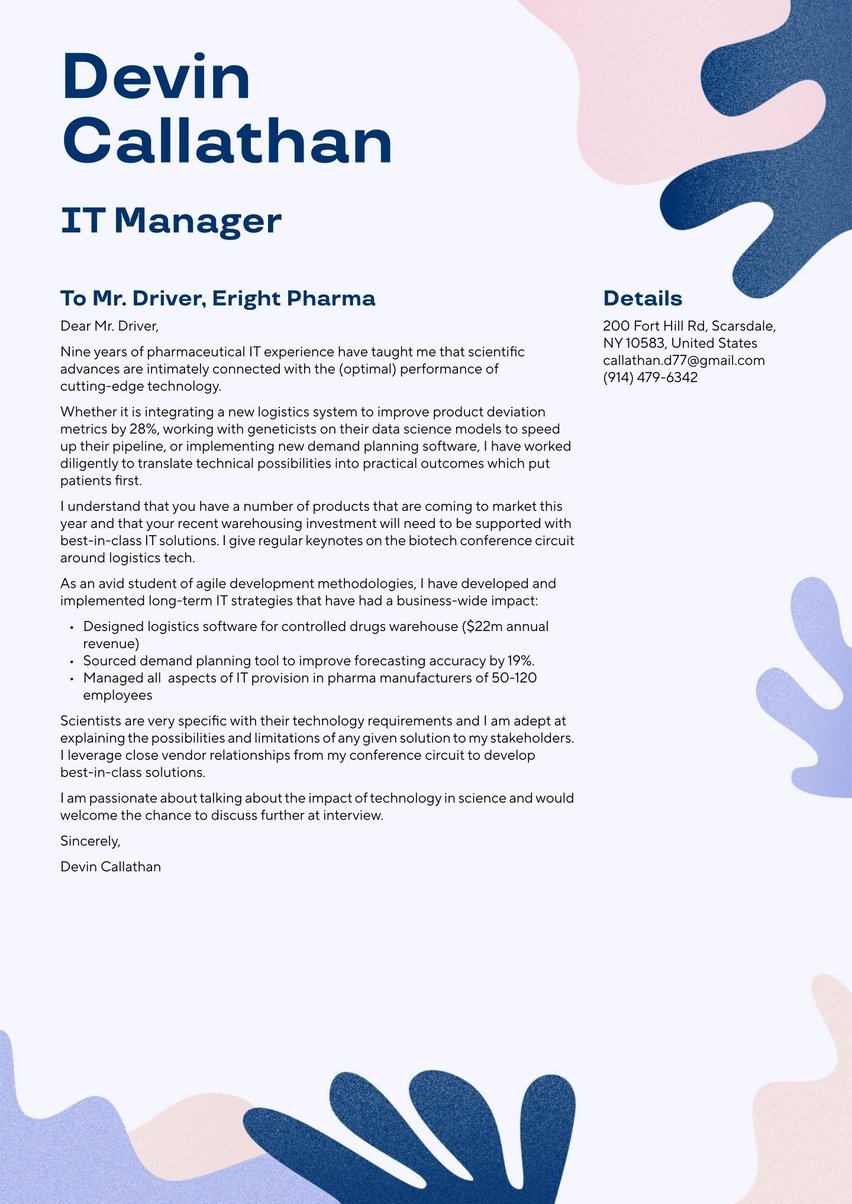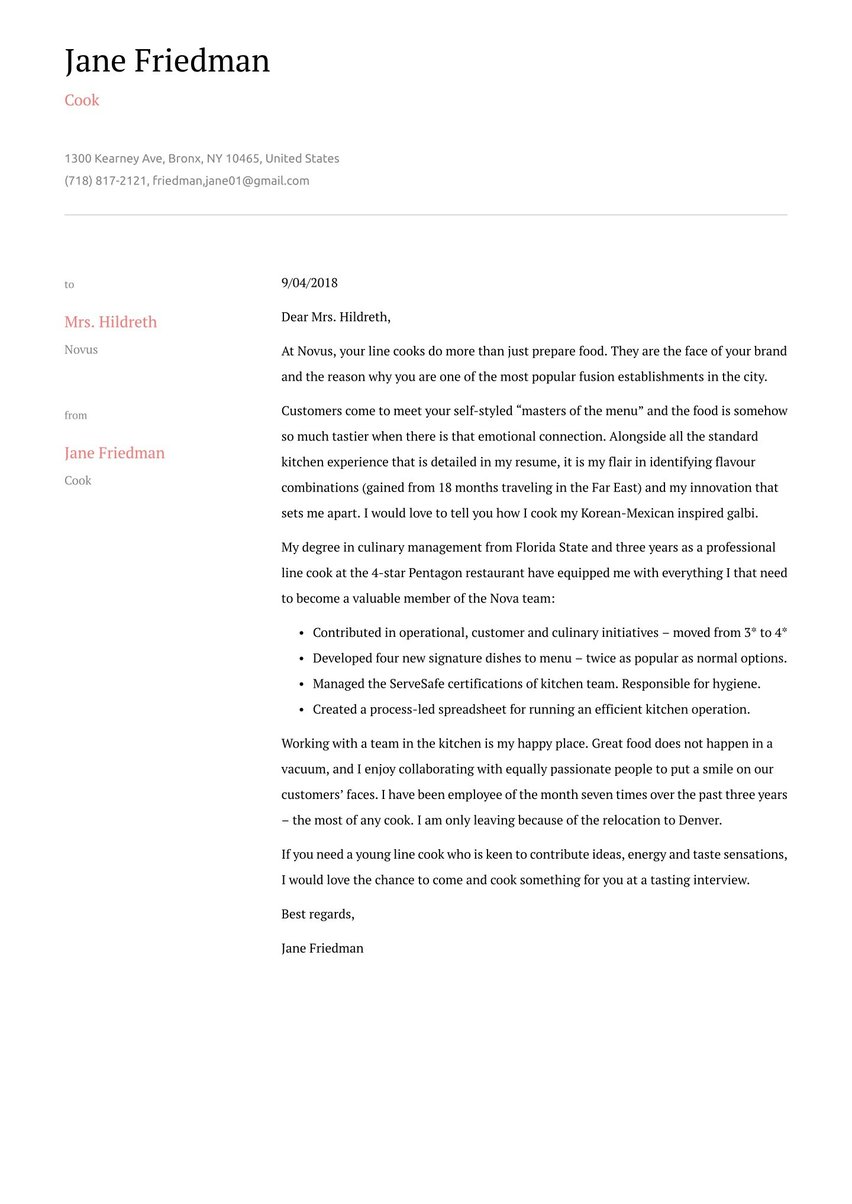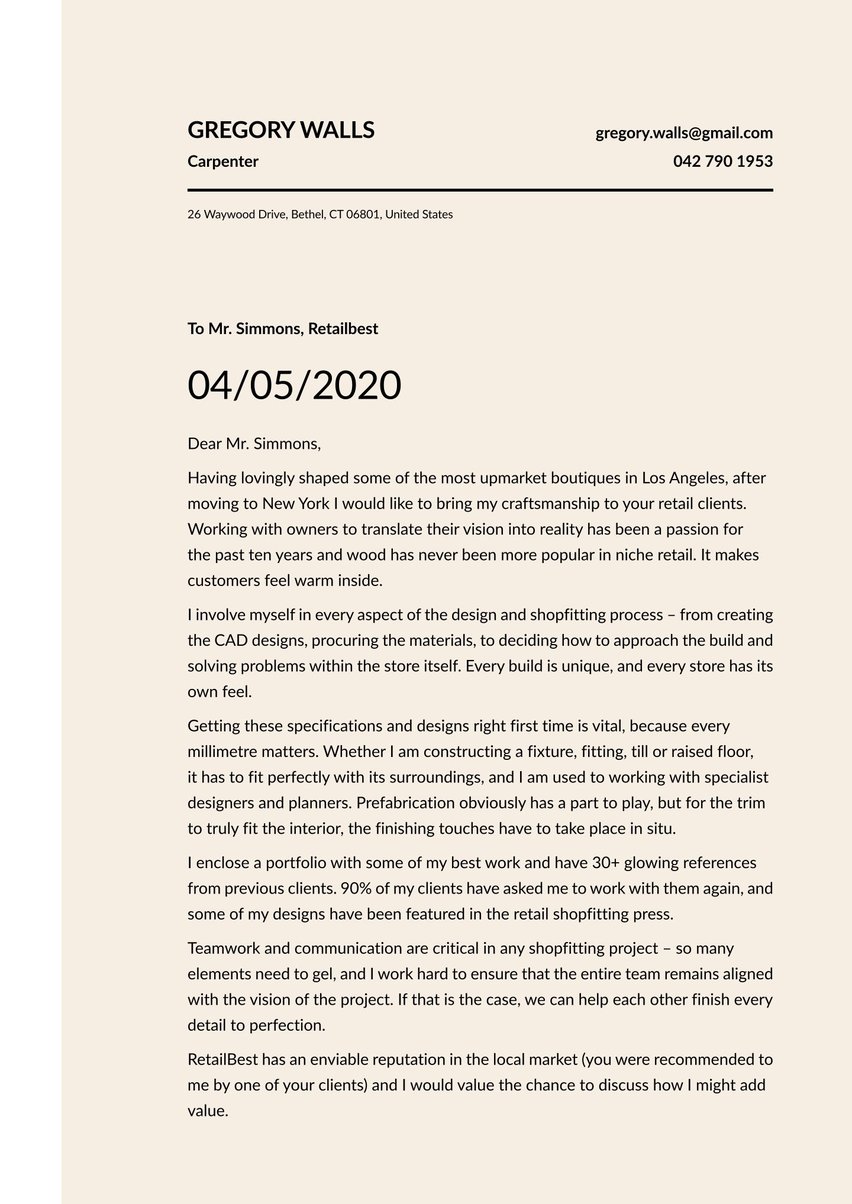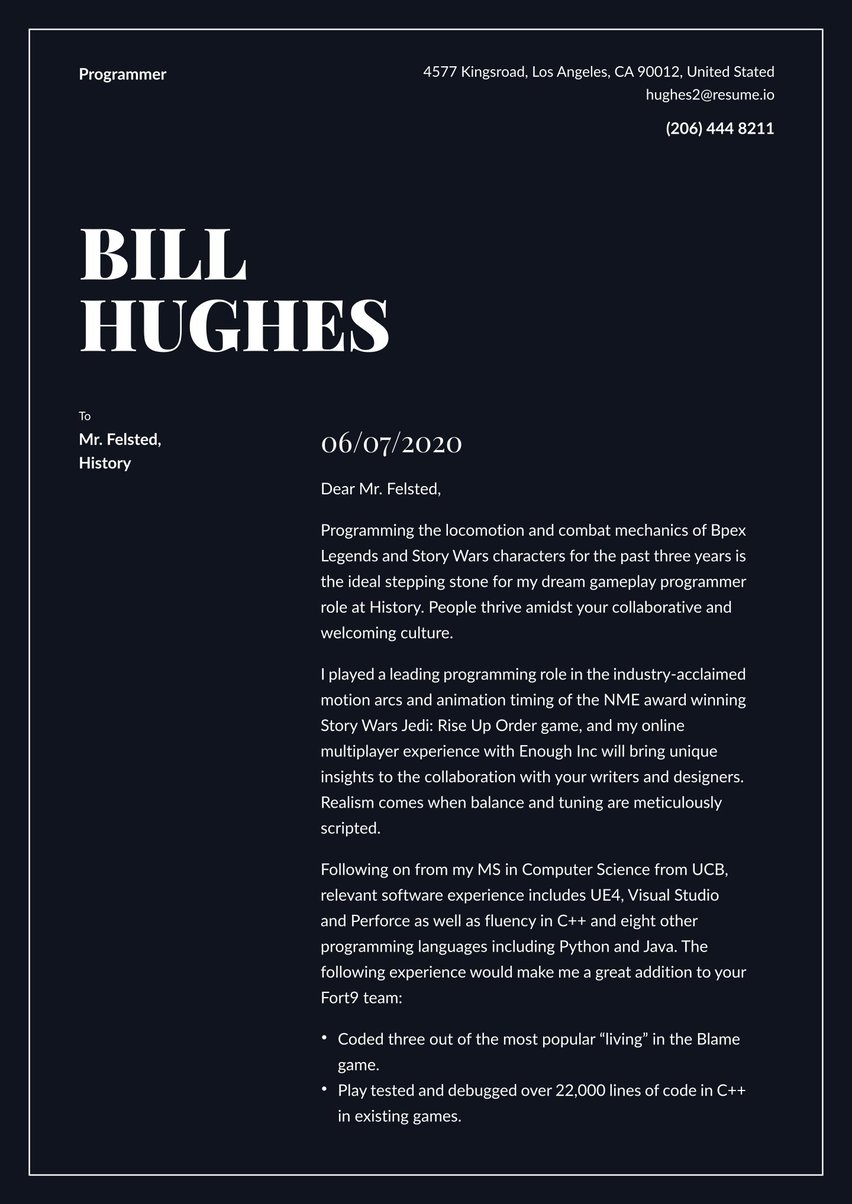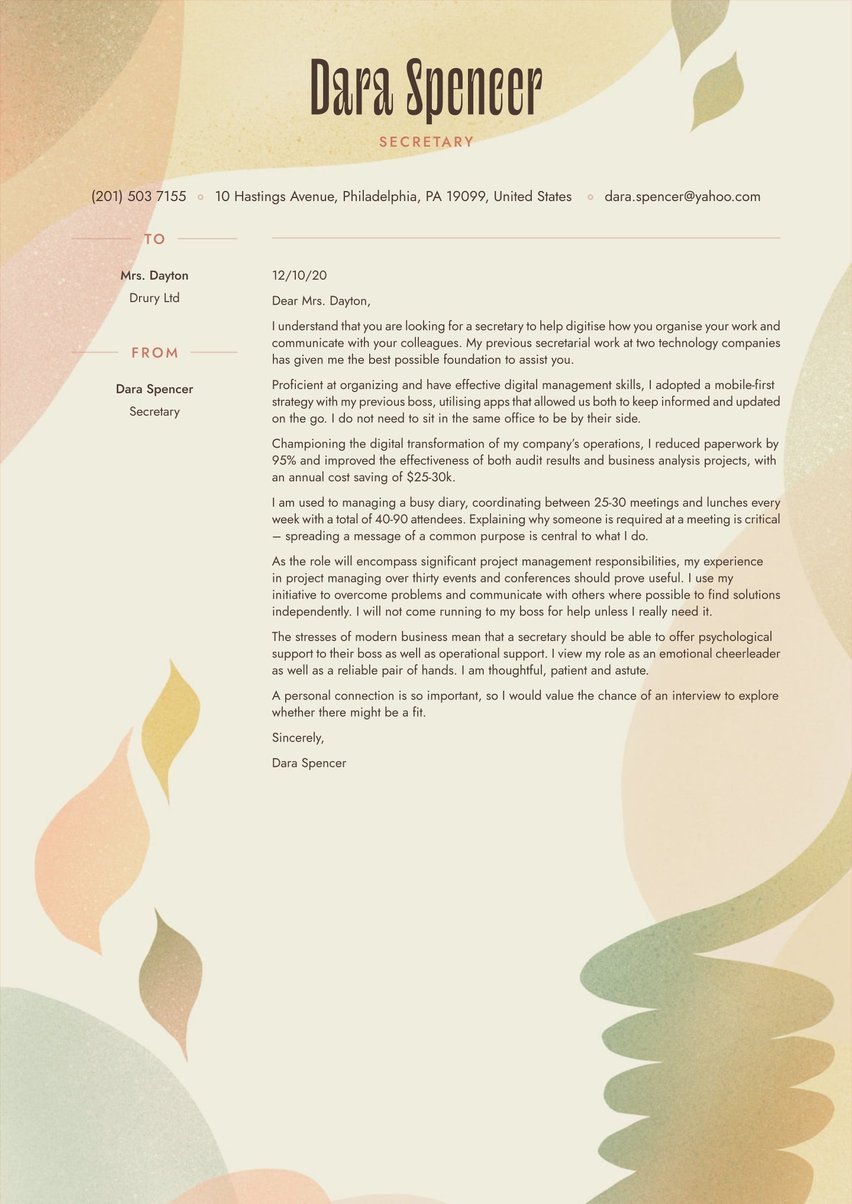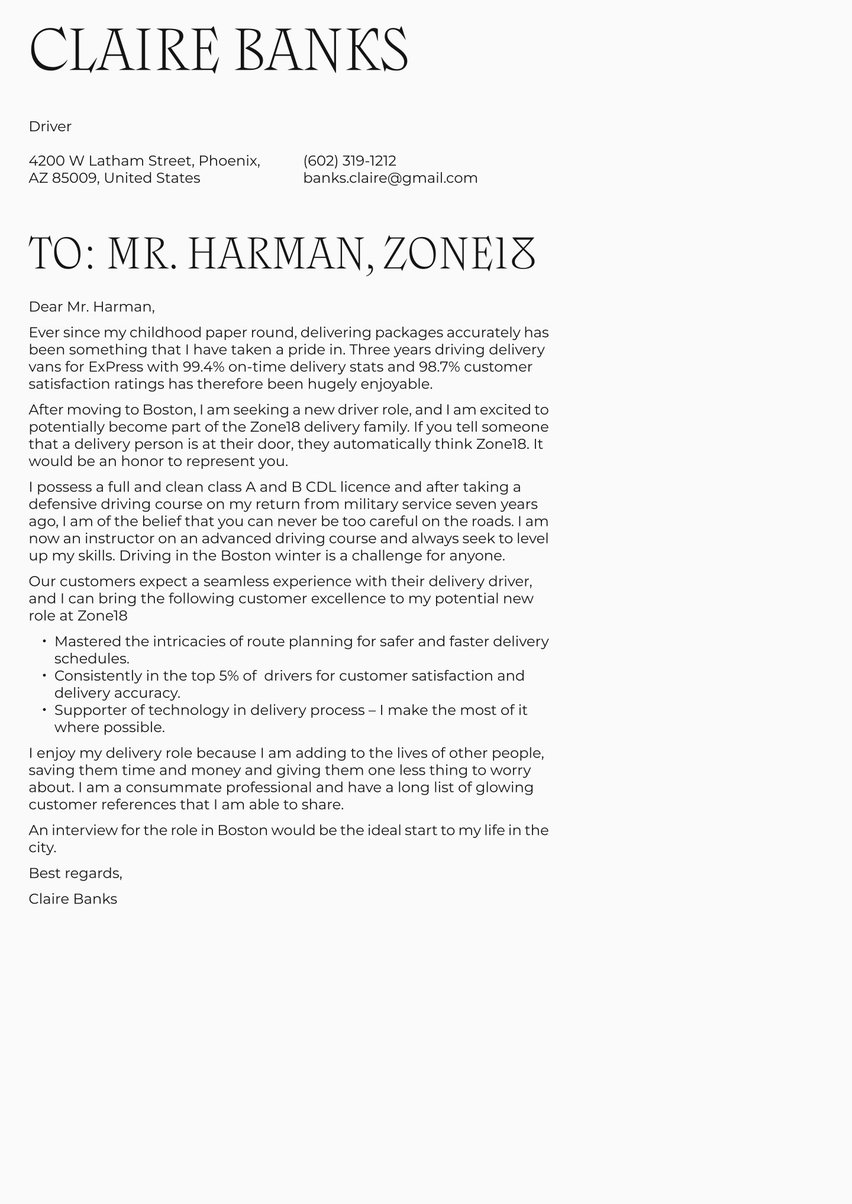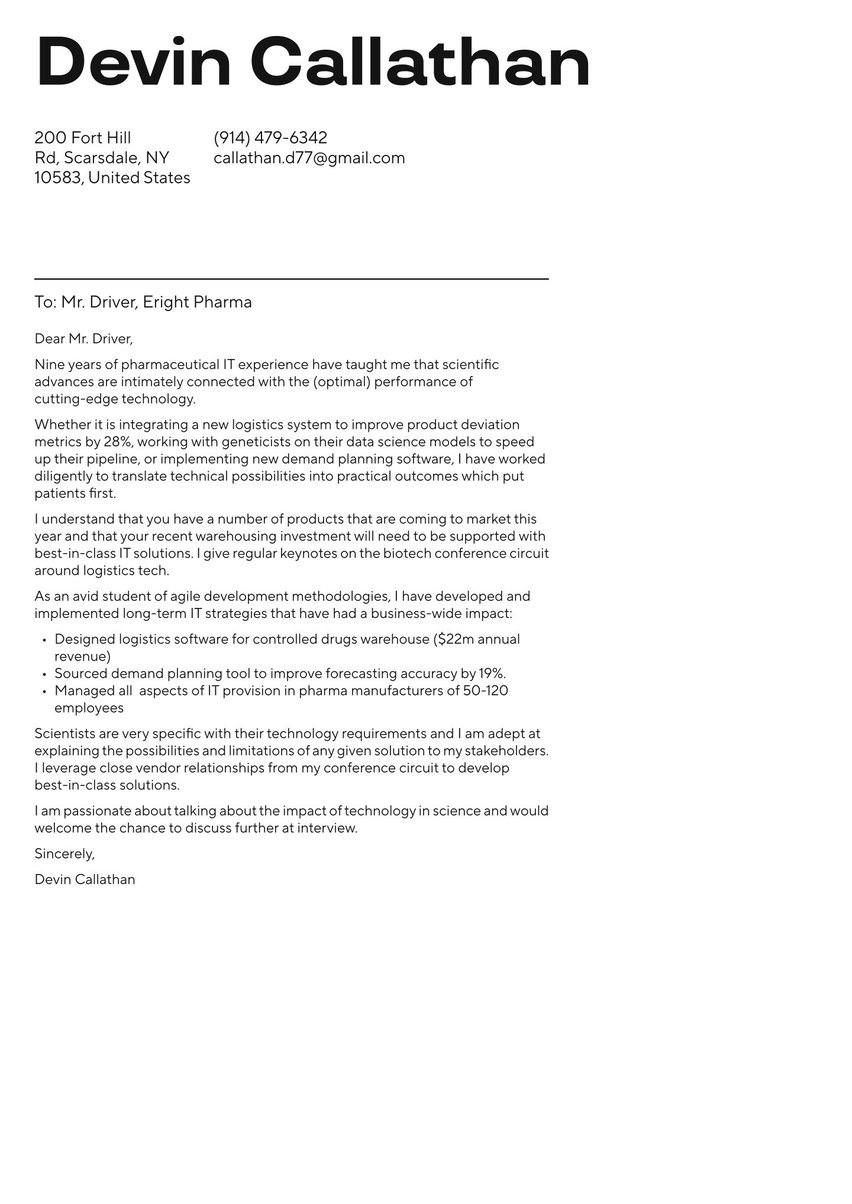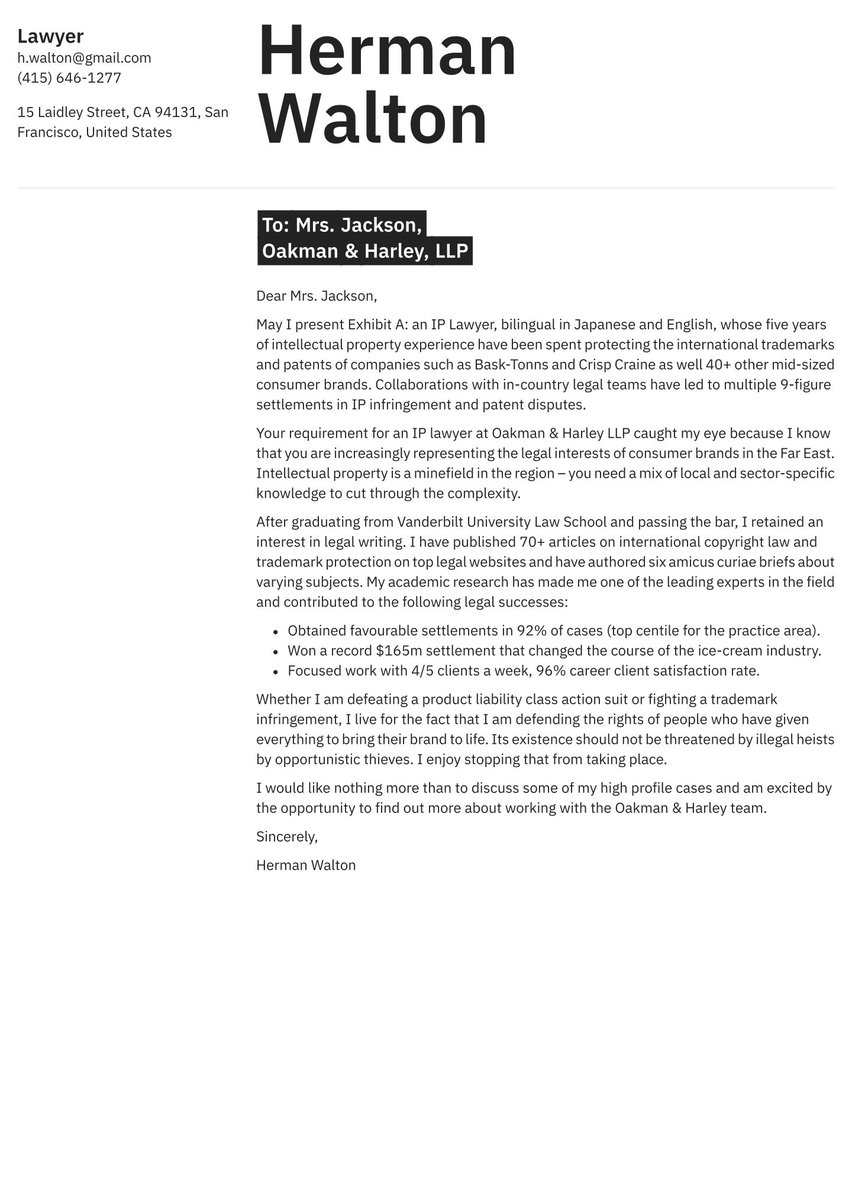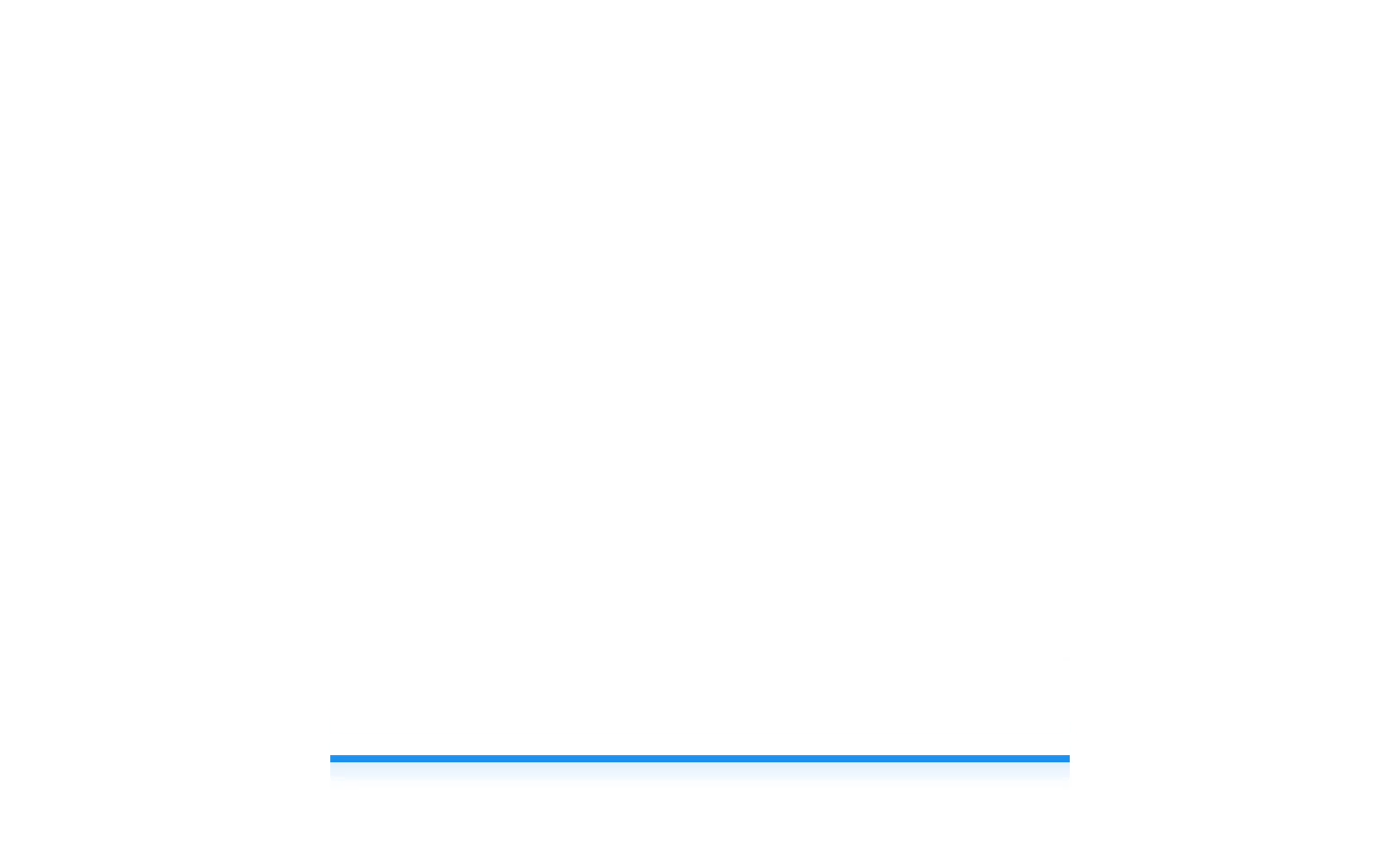Securing a part-time job at a reputable employer is more competitive than you might think. Just because you will be working part-time doesn’t mean that the employer won’t expect the output of a full-time employee for the time that you are there. Your part-time job cover letter needs to describe your motivations and experience. Why are you the person for the role?
Competition for the position will be varied. Applicants for roles in hospitality and retail may be up against students or those approaching retirement, while the proliferation of part-time professional roles means that all sorts of people could be interested. Having said this, your part-time job cover letter should set out your unique circumstances and motivations. Put yourself out there in the best way and let the hiring manager decide.
The competitive advantage of writing a thoughtful cover letter lies in the fact that not many applicants will spend much time on it. If your letter is personalized with relevant anecdotes and closely tailored to the demands of the job description, your chances of securing an interview will increase. Tell them exactly what sort of part-time role you are looking for. Let the employer know how the part-time role fits in with your career ambitions – they don’t want you to leave soon after joining.
When applying for a part-time role, it is worth looking around for diverse sources of inspiration. Our library of cover letter examples shares letters for hundreds of different roles. Have a look at the different approaches to telling a career story. What would work for you? In this guide, we’ll cover:
- How to choose a format that helps you to share your motivations
- Which parts of your career story to share in each section
- Writing a part-time job cover letter with no experience
- Mistakes to avoid in order to create the best possible impression
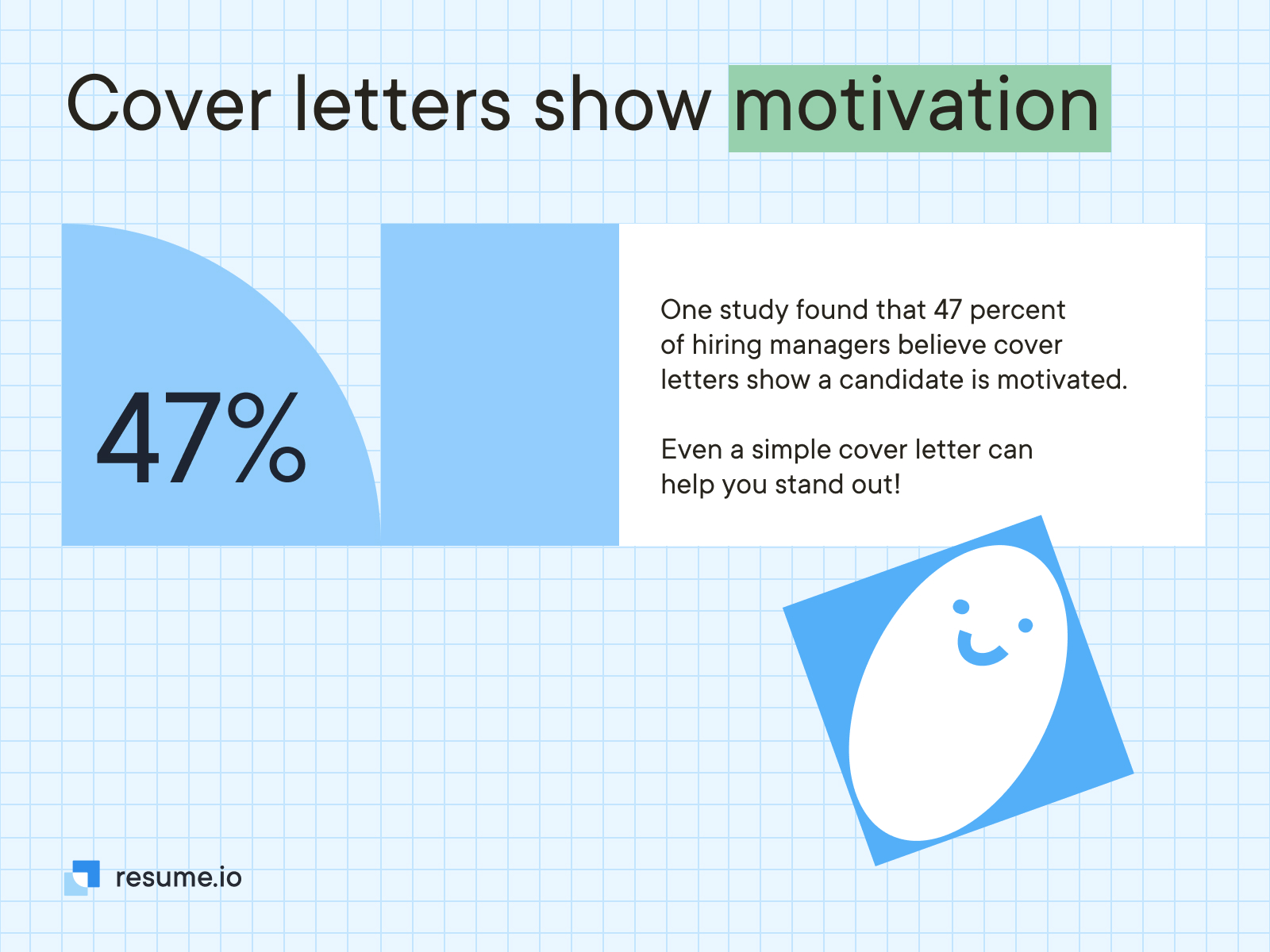
Best format for a part-time job cover letter
No part-time cover letter should be short of content. You will be surprised just how quickly you run out of space to outline your motivations. The structure of a part-time job cover letter should be no different to one for a permanent role. Share the different aspects of your career story in the different sections of the letter. Take your hiring manager on a journey. The typical format of a part-time cover letter looks like this:
- The cover letter header
- The greeting/salutation
- The cover letter intro
- The middle paragraphs (body of the letter)
- The ending paragraph of your cover letter (conclusion and call-to-action)
Each of these sections should carry a slightly different message, but the whole letter should be 100% relevant for the role in question. This is not easy to do if you have not worked in the industry previously, but employers of part-time employees will be used to looking for transferable skills. Share evidence that you know what is required.
It is not only the content that will make you think. There are plenty of other considerations when you sit down to write a cover letter. Our comprehensive cover letter guide shares some of the more left-field aspects of cover letter writing such as which font to choose and how the design of the cover letter might influence a hiring manager.
Read our part-time cover letter sample for an idea of what we mean:
Re: Part-time job
Dear Ms. Beckley,
I am hoping to secure a part-time role in the market research industry and understand that there may be an opening within your consumer goods team.
As the final year of my marketing degree approaches, I plan to write a dissertation on customer behavior and would value the opportunity to gain some real-life market research experience before I embark on my own project. I have long followed your work and would love to play a part in your future campaigns.
My previous work experience in marketing includes six months working for a corporate conference provider and a year writing copy for a social media consultancy. I am used to people-facing activities and am a regular on the university debate team. Market research demands a determined and resilient attitude. Early morning training sessions for the swim team have equipped me well.
I believe that my marketing professor has been in touch with you about the possibility of my participating in the project. He mentioned that you studied together and felt that my skills may be of use to you. Paula Heath from the faculty did a similar project for you last year and I know that I would be able to emulate her success.
I would welcome an interview to discuss the requirements of the role in more detail.
Sincerely,
Lillian Rust
Cover letter header
With the number of part-time applications that an employer receives, you can’t afford for them to struggle to find your contact details. Share your full name, email, and phone number in the header section of the cover letter. It should be duplicated here as well as on your resume. You never quite know when the hiring manager might decide that you are the one.
While the design of the cover letter header should be attractive, it shouldn’t take up too much space. Avoid including your full address (you can share it at the offer stage) and certainly don’t include the inside address of the employer.
Cover letter greeting
While a part-time job cover letter may be slightly more informal if you know the hiring manager, the formal conventions of a greeting should nonetheless be followed. A greeting like “Dear Mr./Mrs. Surname” is essential. Assuming you know the recipient of the cover letter.
If you do not know to whom the part-time job cover letter should be addressed (as is common in speculative applications), you can either phone the company to check or start with “Dear Company Team.” This warmer greeting shows that the letter is tailored towards the employer and avoids the impersonal “To Whom It May Concern.”
Cover letter introduction
The introduction of a part-time job cover letter can go two ways. You can either share your motivations for why you want the job, or you can share why your experience is suitable for the job. The latter is preferable, but you might be surprised just how impressive suitable motivation can be. If the role is a perfect fit with your career objectives, then that is a valid place to start.
The hiring manager does not want to take on someone who is difficult to train or who isn’t up to the challenge. Just because you have experience working in part-time retail doesn’t mean that you were born for it. Show some personality and talk about how you love serving customers, getting involved in the operational nuances, and working closely with your colleagues. Just stating that you have got a little industry experience is not enough.
Dear Ms. Beckley,
I am hoping to secure a part-time role in the market research industry and understand that there may be an opening within your consumer goods team.
Cover letter middle part (body)
The middle part of a part-time job cover letter needs to satisfy the hiring manager that you have the potential to do well at the role, have the desire to stay long enough to make a difference and possess the personality to fit in with the rest of the team. If any of these three requirements are missing, they will likely look elsewhere.
The most important consideration is that your cover letter should not read like the others. Make unique statements about your candidature that others cannot match. Tired, old job search cliches will not set you apart.
Give details of achievements that were hard fought and display the personality traits that will ensure you excel in the role. Share reasons why this exact role is an ideal fit for you. The more specific you can be, the more curious a hiring manager will be to meet you.
There should be a sense of progression in both your resume and cover letter. Whether you are at the start of your career or looking to change gears, there should be a compelling reason why this part-time role is right for you on your journey.
Even part-time job applications are processed by an ATS system. Make sure that your cover letter contains enough keywords to pass the first step in the recruitment process.
While a part-time job in the past may have been secured with a quick letter and an informal meeting, most such roles these days require a proper recruitment process. This includes sending your resume and cover letter through an Applicant Tracking Systems (ATS) software. As the volume of applicants for such roles is often high, employers often use basic keyword matching as their first selection hurdle.
You may find that you have more to say than you think. When you get to the end of the letter, take a moment to double-check that you have shared only the most suitable examples.
As the final year of my marketing degree approaches, I plan to write a dissertation on customer behavior and would value the opportunity to gain some real-life market research experience before I embark on my own project. I have long followed your work and would love to play a part in your future campaigns.
My previous work experience in marketing includes six months working for a corporate conference provider and a year writing copy for a social media consultancy. I am used to people-facing activities and am a regular on the university debate team. Market research demands a determined and resilient attitude. Early morning training sessions for the swim team have equipped me well.
I believe that my marketing professor has been in touch with you about the possibility of my participating in the project. He mentioned that you studied together and felt that my skills may be of use to you. Paula Heath from the faculty did a similar project for you last year and I know that I would be able to emulate her success.
How to close a part-time job cover letter (conclusion and sign-off)
The conclusion of a part-time job cover letter should end with one last reason to hire you. The hiring manager likely won’t have an awful lot of evidence on which to base their decision, so arguing your case until the last will leave the impression that there is more to come.
Finish the cover letter by sharing that you are looking forward to the opportunity of finding out more during an interview. Part-time roles are often flexible opportunities depending on the skill set of the person involved, so you never quite know the scope of the role until you meet. Be polite and hopeful rather than expectant.
I would welcome an interview to discuss the requirements of the role in more detail.
Sincerely,
Lillian Rust
Part-time job cover letter with no experience
While you may not have direct experience for the part-time role in question, it is likely that you will have enough transferable experience to prove that you have what it takes. Don’t be lazy with the application – make every effort to be creative with making your case. Your passion for the role will come across in a highly personalized cover letter.
If you feel that you are lacking experience, you may wish to consider the following:
- Talk about what you have achieved in previous internships and part-time roles.
- Focus on the role and be positive about what you can contribute.
- Demonstrate that your personality fits the company culture.
- Talk about your motivations and where the role fits in your journey.
Many bosses of part-time workers will prioritize personality over experience, so make sure that your cover letter offers a “real” account of who you are. Don’t pretend to be something that you are not. Life is too short to not get on with your boss.
Basic mistakes in a part-time job application letter (and how to avoid them)
Part-time workers will often take on tasks that require a high degree of attention to detail. Show that you can concentrate on the outcome. Avoid these cover letter mistakes.
- Spelling and grammar errors can easily creep in when you are rushing to send off a cover letter. Double-check with online software such as Grammarly.
- Don’t write anything that isn’t relevant to the role. It is better to write a slightly shorter cover letter than waste the time of the hiring manager.
- Don’t be too formal. This is a part-time role, so make sure you strike a professional but conversational tone. Write as you would speak during an interview.
Key takeaways
- The cover letter should focus on your motivations as much as your experience.
- Research the role properly to demonstrate that you know what you will be doing.
- Structure the letter into individual stories sprinkled with personality.
- Choose an attractive design for the part-time cover letter with cover letter templates.
Looking at examples of other cover letters can spark inspiration. Here are a few to consider.


